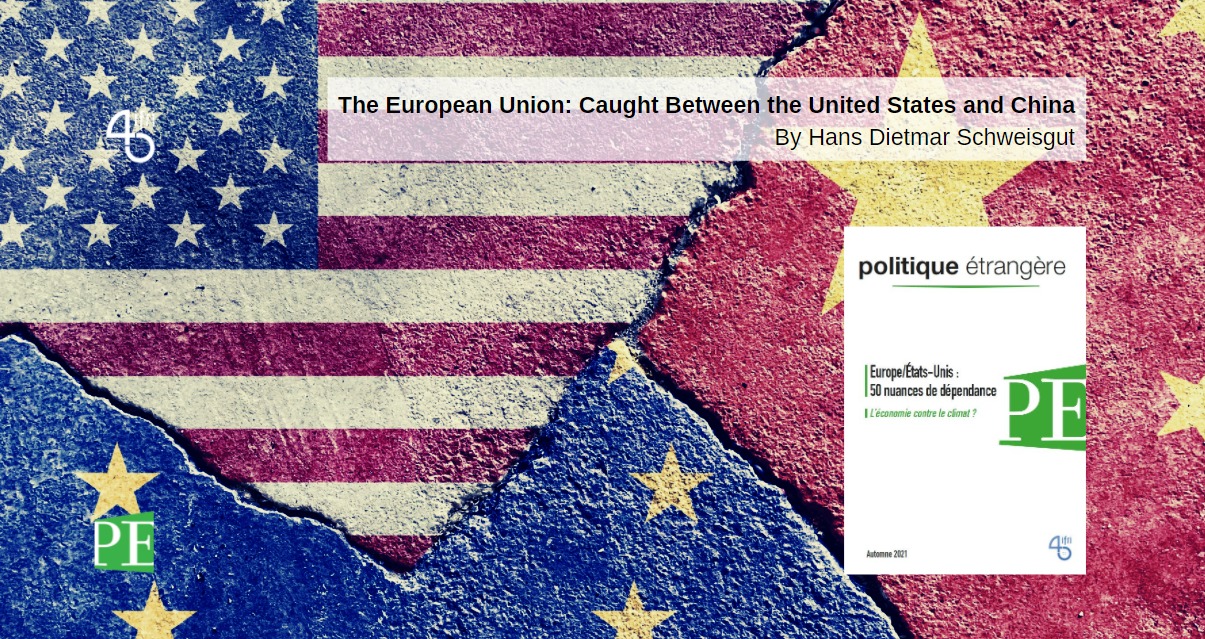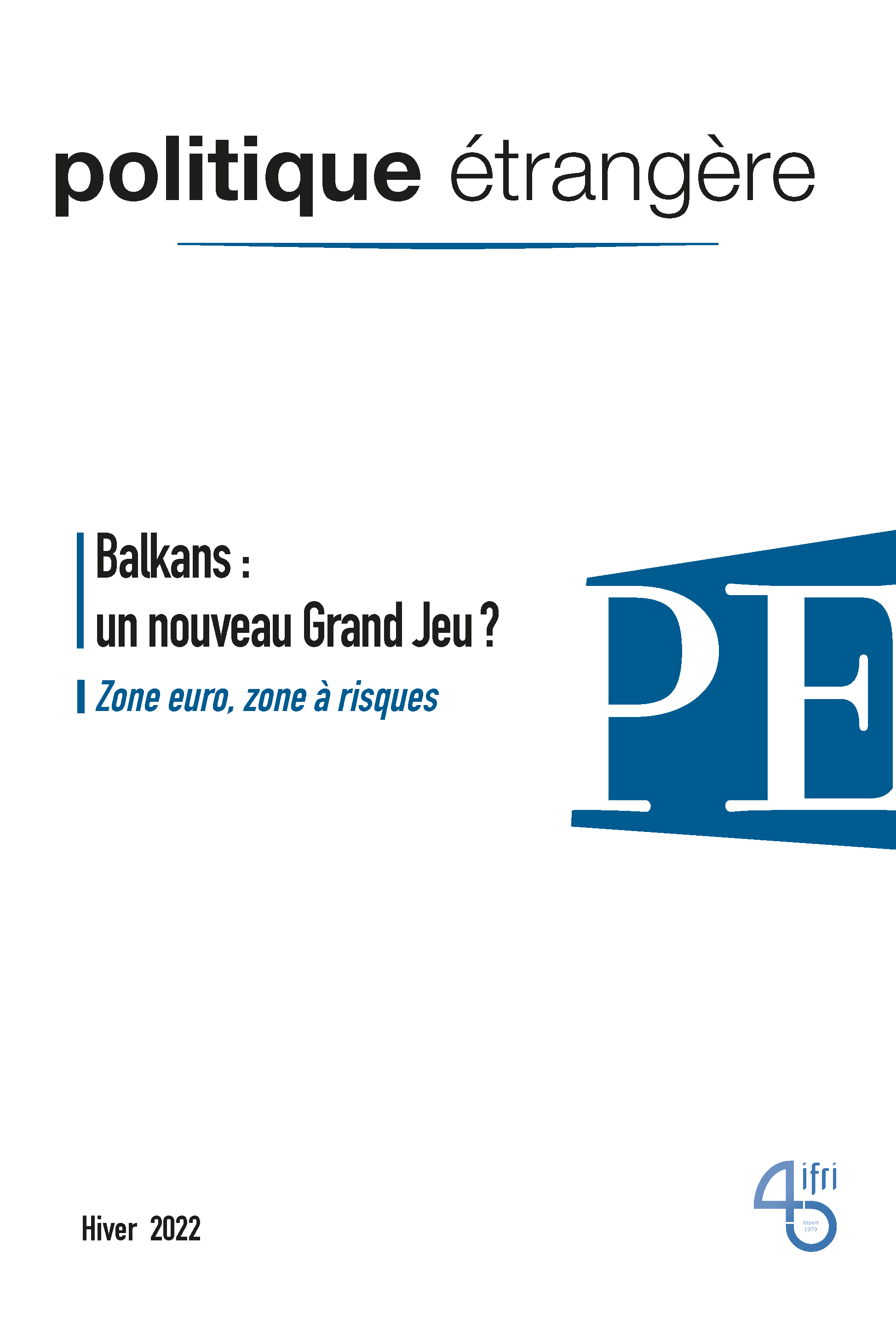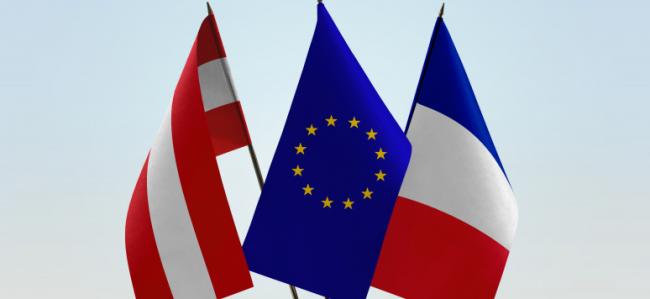The European Union: Caught Between the United States and China
The United States and the European Union (EU) are now both in agreement regarding China – long viewed benevolently – as a systemic rival in the international order.

Despite this consensus, their interests differ with regard to Beijing, with the EU intending to maintain a degree of a partnership approach in its relations with China. However, the EU will have an impact in Indo-Pacific only if it develops long-term strategies there, backed up by tangible means.
Hans Dietmar Schweisgut, secretary-general of the Austro-French Centre for Rapprochement in Europe, is a former European Union Ambassador to China.
Article published in Politique étrangère, Vol. 86, No. 3, Autumn 2021.

Available in:
Regions and themes
Share
Download the full analysis
This page contains only a summary of our work. If you would like to have access to all the information from our research on the subject, you can download the full version in PDF format.
The European Union: Caught Between the United States and China
Related centers and programs
Discover our other research centers and programsFind out more
Discover all our analyses
The Balkans: A New Great Game?
What political spaces make up the Old Continent? This question is at the heart of the Ukrainian conflict.
The Governance of Energy Poverty in Southeastern Europe
This report presents the outcomes of a recently-completed research project1 aimed at uncovering the different ways in which energy poverty – understood as a condition wherein the domestic energy services available to a household are below socially and materially necessitated levels – is produced by, and mitigated through, the interaction of relevant decision-making institutions in the energy, social welfare, health and housing domains. The project focused on conditions in Southeastern Europe, where energy prices have been recently on the rise despite falling incomes and poor access to efficient and adequate energy services.
Serbia moving ahead towards trade liberalization with EU?
An Interim Agreement on Trade and Trade related aspects (ITA), signed between the European Community and Serbia in April 2008, entered into force on February 1, 2010. This ITA, as a part of the Stabilization and Association Agreement, “establishes a bilateral free trade area over a period lasting a maximum of six years starting from the entry into force of this Agreement in accordance with the provisions of this Agreement and in conformity with those of the GATT 1994 and the WTO”.





